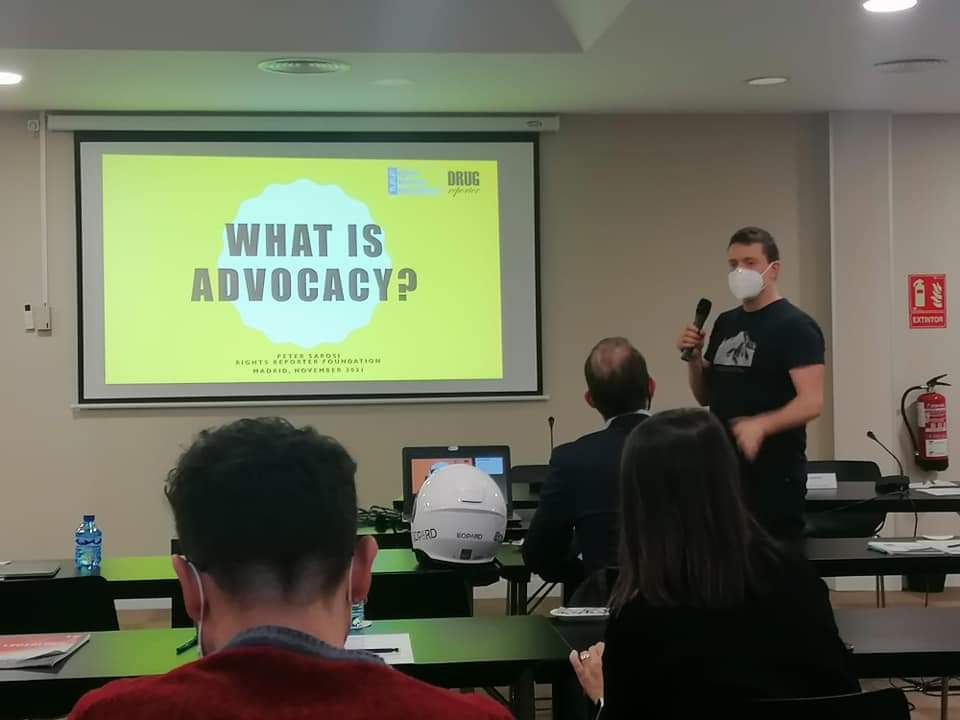The Civil Society Forum on Drugs (CSFD) organised an on-site Workshop on civil society advocacy from 23th to 24th November in Madrid, with the support from UNAD, International Drug Policy Consortium, Rights Reporter and AFEW.
Since advocacy is an important tool for civil society members to achieve their main goal of influencing public policies, this training workshop brought together representatives from Civil Society Organisations (CSOs) in the field of drugs in order to improve their capacities in formulating, implementing and evaluating advocacy actions.
Several participants came from the DPNSEE member organisations. The participants’ profile was:
- Civil society representatives and service providers in the field of drug use and drug demand reduction which have their main base of operation in an EU member state, EEA, acceding, candidate or potential candidate country(*). They are members of the Civil Society Forum on Drugs or related to one the members’ networks.
- Highly motivated to improve their capacities in the area of advocacy and will be able to implement and share gained knowledge and information within their organisation.

The workshop was an interactive training with open space to intervene and to create new tools for advocacy in a hostile environment. Excellent presentations were delivered by Peter Sarosi and Marie Nougier.




 To read the report,
To read the report,